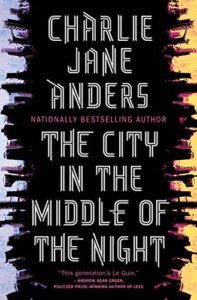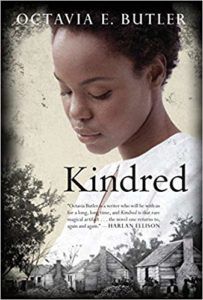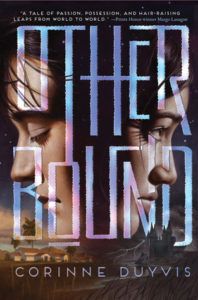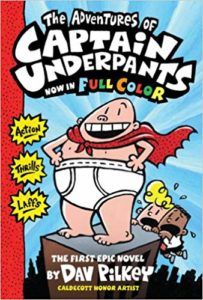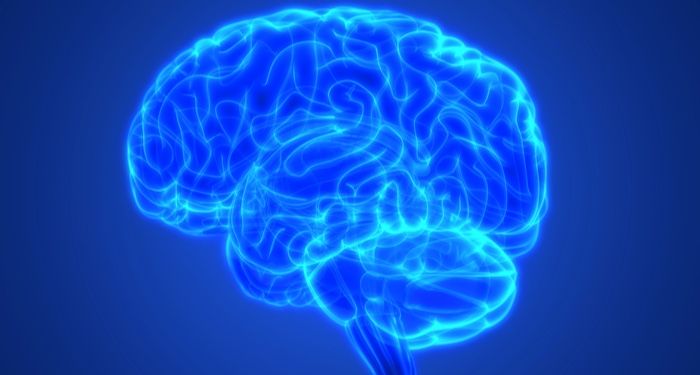
5 Great Books By Neurodiverse Authors For Your TBR
Books allow us to explore perspectives far removed from our own and get inside someone else’s head like nothing else. And no one has a unique perspective to share quite like a neurodiverse author, starting with the wiring of our brains. It can be a powerful way to understand how different people function, and different ways of thinking can come up with some incredible new ways to see the world—and create new ones. Here are five talented neurodiverse authors to try, and what to read first from each of them.
Charlie Jane Anders
Anders wrote about the challenges she faced as a kid in the school system due to her Sensory Integration Disorder and how an incredible teacher helped her overcome it. The teacher motivated her with the opportunity to write and perform her own play: “It was my first work of creative writing. It was the first time I can remember feeling like there was a point to school,” she wrote.
 What to Read: The City in the Middle of the Night
What to Read: The City in the Middle of the Night
In a grim but enchanting distant world where day and night are places rather than times, Anders tells a strange and epic story of two friends as they fight to hold onto their relationship even as their worldviews pull them apart. The best thing about this novel is the detailed and unusual descriptions of the gentle-spirited creatures native to the planet.
Octavia Butler
This genius of speculative fiction was dyslexic. Due to her struggles in school, Butler apparently never considered herself very smart as a child, and it took the championing of a teacher who believed in her to get her to submit a story to a science fiction publication at 13. Despite her dyslexia, Butler loved both reading and writing from a young age.
 Read: Kindred
Read: Kindred
Really, everything from this multi award–winning figurehead of the genre is worth picking up, but this may be her best known work. In this novel, a modern Black woman is taken back in time time to the antebellum South, repeatedly, to save the white son of a plantation owner. Each time, her life is in greater peril.
Corinne Duyvis
This autistic science fiction author has channeled her experiences into an incredible impact for the publishing community. Not only is Duyvis the creator of the popular #OwnVoices hashtag, but she also co-founded the Disability in Kidlit website. Of representation in fiction, Duyvis said, “I am not a deviation from the norm. I am the norm in my own life.”
 Read: Otherbound
Read: Otherbound
Nolan discovers that when he blinks he doesn’t see darkness, but instead sees through the eyes of a girl in a different world. As he learns to communicate with her, he becomes involved in a world wildly different from ours, full of magic and danger.
Helen Hoang
Hoang wasn’t diagnosed with autism (previously known as Asperger’s) until she was in her 30s, when a preschool teacher suggested her daughter might be on the spectrum. After a life of trying to cover up the ways she was different, Hoang said she felt the diagnosis freed her. “It’s mostly with helping me advocate for myself and to understand my needs better.”
 Read: The Kiss Quotient
Read: The Kiss Quotient
Hoang started writing this gender-swapped adaptation of Pretty Woman while working toward her own diagnosis. Through her autistic heroine, she said she came to understand herself better, too. Both of the lead characters of this novel are full of heart, and they share a sizzling chemistry that is hard to put down.
Dav Pilkey
Though Pilkey’s ADHD and dyslexia caused him to be constantly sent to the hall during class as a child, he insists they are his superpower as an author. “[My ADHD] helped me to write stories that were not boring, and my dyslexia helped me too. It helped me to choose my words very, very carefully,” he said.
 Read: The Adventures of Captain Underpants
Read: The Adventures of Captain Underpants
The playful and zany children’s book is popular for a reason—its playful narrators may get into some trouble, but they’re always active and using their imaginations. Join them as they create their own comic book featuring the greatest superhero their elementary school has ever known.



